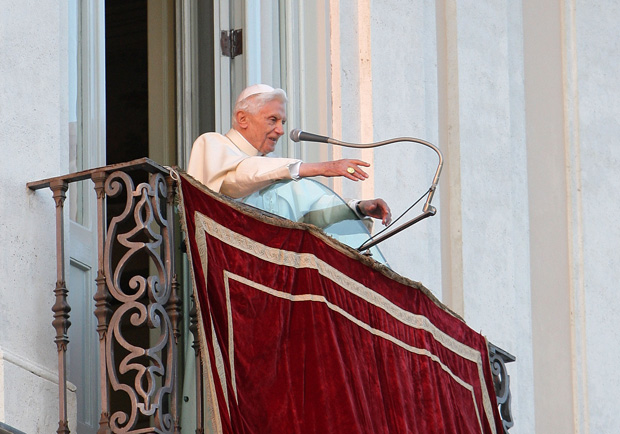Most pastors aren't dreaming of retirement. A 2009 study of Church of Christ pastors, for example, found that only 1 of 4 had plans for full retirement; more than that said they didn't plan to retire at all.
But for the senior pastor of one church, retirement was practically unthinkable. On February 28, Pope Benedict XVI became the first Roman Catholic pope in nearly six centuries to leave the position without dying in office.
In some ways, Benedict's resignation sent the most important message of his papacy, said Chris Castaldo, director of the Ministry of Gospel Renewal at the Billy Graham Center and author of Holy Ground: Walking with Jesus as a Former Catholic. The First Vatican Council, with its emphasis on papal infallibility and "supreme apostolic authority," distanced popes from their flocks. This resignation highlights the leader's vulnerability and limits, Castaldo said.
"Ministry is not about us as pastors or church leaders—it's about the needs of the church," Castaldo said. "When we realize that we no longer have the strength, then as a matter of stewardship it's appropriate for us to step down."
Protestant leaders could take a cue from Benedict's choice, said Will Willimon, 66, who retired last year as a bishop in the United Methodist Church and now teaches at Duke Divinity School. He said he has always been afraid of staying past his usefulness in a ministry role and promised when he was elected as bishop to serve for only eight years.
"I don't want to stay so long that I become a liability," he said.
However, other leaders say pastors are leaving the ministry too soon and instead should be encouraged to stay and pass on their wisdom to the next generation.
Don Sweeting, coauthor of How to Finish the Christian Life and president of Reformed Theological Seminary in Orlando, said Benedict's choice to step down is a good example of a religious leader serving the church until he or she is physically unable to keep working. Many contemporary churches push out pastors too soon, he said, but Benedict and Protestant leaders such as John Stott, Billy Graham, and Chuck Colson show that older ministers can still have great impact, he said. Older leaders can be particularly helpful in mentoring younger ministers, he said.
"I don't understand why people say, 'Let's get rid of our pastor who is over 60,' when the western world is graying," Sweeting said. "When churches prematurely put them out to pasture, they make a huge mistake."
When pastors do "retire," they should reconsider the modern, Western idea of retirement and think of ways to still pursue ministry, Sweeting said. The average age pastors say they'll retire is 63, according to a 2001 survey of U.S. pastoral leaders.
Many pastors look forward to retirement as a way to escape frustrating daily responsibilities; others are pushed out of the role as they age, said James Knapp, a professor of sociology at Southeastern Oklahoma State University who has studied clergy retirement. Some pastors hope to stay in their roles as long as they live
Charles Swindoll, senior pastor at Stonebriar Community Church, has said publicly that "pastors don't retire" and he hopes to preach until he dies. He declined to comment to CT.
"[Swindoll] has no plans for retirement, but it's problematic for him to address it because there isn't a biblical precedent. The Scripture is silent on it," said Roy Williamson, a pastor at Stonebriar Community. Retirement is a modern-day phenomenon that isn't in the Bible, Williamson said.
"Often pastors' identities are so tied to their jobs that they forget they can still serve the church after stepping down," said Willimon, who now teaches Christian ministry at Duke Divinity School. "There's an ending to the pastoral life. The ending is you get to be a disciple again."










